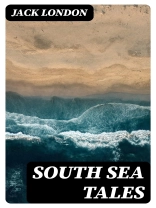In ‘South Sea Tales, ‘ Jack London transports readers to the exotic locales of the South Pacific, crafting a collection of short stories that explore the lives of sailors, adventurers, and the indigenous peoples of these far-flung islands. London’s literary style in this work is characterized by his hallmark vivid imagery and a visceral sense of adventure, embodying the themes of man versus nature and the struggle for survival. Contextually, these tales emerge from the complex post-colonial landscape of the early 20th century, drawing on London’s own extensive travels in the region, which infuse the narratives with authenticity and an acute sense of place. Jack London (1876-1916) was an influential American author whose life experiences profoundly shaped his writing. A sailor and adventurer in his youth, London’s travels through the South Seas not only inspired this collection but also reflect his broader interest in the dichotomy of civilization and the untamed wilderness. His deep-seated fascination with the human condition, coupled with a keen awareness of social issues, informs the intricacies of these tales, making them a nuanced study of humanity’s motivations and moral dilemmas. ‘South Sea Tales’ is a must-read for those who appreciate the exploratory spirit of early 20th-century literature. It invites readers to embark on a journey filled with vivid landscapes and compelling characters, while illuminating the struggles and triumphs of life at the edge of civilization. Whether you are a seasoned literary scholar or a casual reader, London’s gripping narratives are sure to leave a lasting impression.
Circa l’autore
Jack London (1876-1916), born John Griffith Chaney, is a quintessential figure in American literature renowned for his adventurous life mirrored in his works. His literary style combines naturalism with a romantic allure of adventure and the struggle for survival. London embarked on a series of adventures, including participating in the Klondike Gold Rush, which deeply influenced his writing (‘The Call of the Wild’, ‘White Fang’). In ‘South Sea Tales’, London brings readers to the exotic Pacific, exploring not only the beauty of the islands but also the colonial tensions and cultural conflicts of the time. His prose in these stories vividly portrays the dangers and allure of the South Seas. London’s empathy for the underdog and understanding of nature’s ways are evident throughout his writing. His contribution to American letters extends beyond his novels, encompassing short stories, essays, and journalism. Despite his relatively short life, London’s prolific output left an indelible mark on literature, making him an iconic figure known for his depictions of the wild, the philosophy of individualism and survival, and the examination of socio-economic conditions of the early 20th century.












